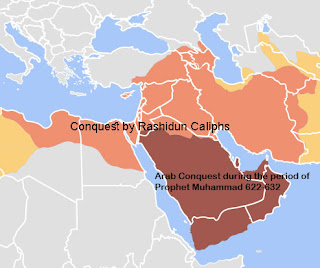The Roman and Byzantine authorities saw Jesus as primarily divine, and when the Byzantine Emperor Zeno shut down a school in Mesopotamia for teaching Nestorian ideas, the school simply re-opened as the School of Nisibis in Persia. This brought many people to the area who believed in Nestorianism.
This Persian Nestorian Church began to expand, but not to the West where they would be opposed by the churches that followed Rome. The 6th century saw schisms started by clashes with Zoroastrianism, but the Nestorians came out even stronger.
Certain parts of the eastern church became known as the Nestorian Church. Nestorians were known in the Mongol court, and it was said that Nestorians provided the West with secrets of silk.
Missions to the Arabian Peninsula and India created dioceses there. India already had Christianity presumably due to St. Thomas. The rumors of a large Christian population in far-off places gave rise to the myth of Prester John. A 6th-century manuscript mentions Persian Christins living in Sri Lanka, and a carved stone cross in a Sri Lankan column discovered in 1912 has been offered as proof of the presence of the Nestorian missions. In the Arabian Peninsula, Nestorians were declared dhimmi (protected persons) by the Rashidun Caliphate when it conquered that area.
The illustration above is of a Nestorian cross from a Beijing monastery dating to the Yuan Dynasty (1271 - 1368 CE), showing how far and how well-established the Nestorian Church became in the Far East.
Since this blog has never explained Zoroastrianism, I think that should be the next topic. See you tomorrow.

.jpg)


